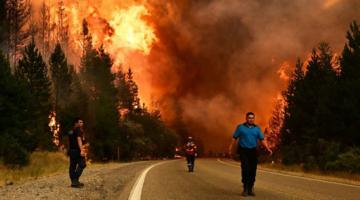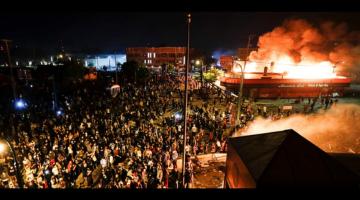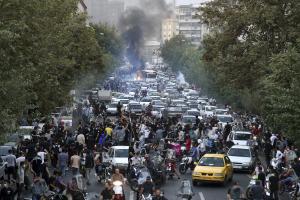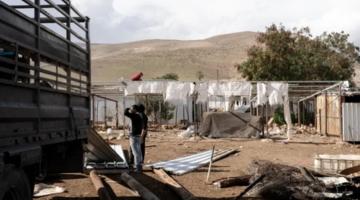Female, queer, gender non-conforming push against the narrative that there’s one single story or view on what it means to be Muslim.
“The authors intentionally wanted to begin to build solidarity among Muslims on the margins.”
In this series, we ask acclaimed authors five questions about their book. This week’s featured authors are Fatimah Asgharand Safia Elhillo. Asghar is the creator of the Emmy-Nominated web series Brown Girls, now in development for HBO. Elhillo is the author of The January Children. Sudanese by way of Washington, DC and a Cave Canem fellow, Elhillo holds an MFA from the New School. Their book is Halal If You Hear Me.
Roberto Sirvent: How can your book help BAR readers understand the current political and social climate?
Fatimah Asghar and Safia Elhillo: This book is a collection of essays and poems from over 50 Muslim writers who also identify aswomen, queer, gender non-conforming, and/or trans. We deliberately wanted to center voices that are often on the margins of an already marginalized identity, and give folks the freedom to write whatever they wanted to write about: love, politics, family, joy, hope, fear, etc. Many of these poems grapple with today’s political and social climate from the perspective of multiple marginalized identities, but also, they collectively push against the narrative that there’s one single story or view on what it means to be Muslim today.
The book also pushes back against a sort of “now more than ever” politic by focusing its gaze and address inward to our communities, instead of centering things like Trump’s Muslim ban and making it seem like our community didn’t exist until it was persecuted. The book is also not overly concerned with trying to face outwards and “humanize” Muslims in the eyes of Islamophobes. The hope is that this book lets our community be seen as it actually is––in laughter as well as in pain, in joy, in sex, in mourning, in formal experimentation, in families.
What do you hope activists and community organizers will take away from reading your book?
In centering the plights of marginalized Muslims, we hoped to give space for people to challenge the discourse on what it means to be Muslim today, as well as to give a sense of connectedness and intentional solidarity to people living in marginalized identities that can sometimes feel isolated. We hope that by giving space to center these voices, we allow activists and community organizers the ability and insight to also center these perspectives in their activism. We started working on this project shortly after the Pulse shooting, and what has always felt important to us to honor in this project are all the ways our identities intersect, how our marginalized identities are so rarely mutually exclusive. We hope activists and community organizers will continue to make space for these intersections in their work––for queer people in faith-based spaces, for people of faith in queer spaces, for all kinds of varied Muslim identities in Muslim spaces. There are conversations in the book about race, about antiblackness, that I would love to see engaged more in Muslim organizing and activism spaces. Our hope is that we’ve created a tool to be used in service of talking about Muslims and Muslim identities with some more nuance than we’ve been afforded in the past.
We know readers will learn a lot from your book, but what do you hope readers will un-learn? In other words, is there a particular ideology you’re hoping to dismantle?
One of the core missions of the book was to show that there are as many ways to be Muslim as there are Muslims. We want folks to unlearn that there’s one ‘right’ way to be anything, or that certain identities can’t coexist (i.e., being both Muslim and Queer). We wanted to provide a space where Muslim writers could safely engage with seemingly ‘taboo’ subjects, such as sex, body, desire, etc. We wanted to intentionally begin to build solidarity among Muslims on the margins, to provide a space where we could see each other and show up for each other despite our varying differences and struggles. We hope to eliminate the thinking that all Muslims are to be painted with the same brush––the only thing that all Muslims are, is Muslim. Not all Muslims are heterosexual; not all Muslims are Arab; not all Muslims are cisgender; and so on, and on, and on. We hope that with this book, when people think of Muslims, they do not think of a monolith of identity in any sense––of race, of sexuality, of gender, of religious practice. We hope that this book will make someone think twice before making another blanket statement about Muslim people.
Who are the intellectual heroes that inspire your work?
Our anthology is the third in a collection of Anthologies put out by Haymarket Press. The first was The BreakBeat Poets: New American Poetry in the Age of Hip Hop, and the second was The BreakBeat Poets Volume 2: Black Girl Magic. We’re honored to be in this lineage of writers who are challenging the typical canons of what is considered poetry and literature, as well as the larger legacy of Haymarket’s radical publishing.
We’ve also had the opportunity to work with so many writers whose work and activism we deeply love and admire––Fariha Roisin’s writing about Islam and queerness, Aisha Sharif on antiblackness in many Muslim spaces, Marwa Helal’s thrilling formal innovations. We both think often about the ways in which our creative and intellectual lineage is not always exclusively linear, that our literary ancestry is not always exclusively vertical. And this book demonstrates so much of our lateral, horizontal ancestry, the ways in which we have been found and named and made by our communities in so many ways, in ways that we weren’t always able to access from our lineage. This anthology is made by its contributors, and they are the community and the inspiration that drove us to work to bring this anthology into the world.
In what way does your book help us imagine new worlds?
In centering Muslims who are marginalized, Muslims who often are excluded from narratives and communities of Islam due to their intersecting identities, we hope to help shape a world where people are allowed to rest in the intersections that they carry and not feel persecuted by them. We hope to build a world where folks who often feel unsafe can feel safe, at home, held, and seen. In Fatimah’s foreword to the anthology, she talks about the Hamaam as a blueprint for the kind of world we can be safe in, with her rallying cry of “Join me. Join us. Let us create a poetics that recreates the Hamaam, where we can come in our real, naked skin, sit in the water, and talk openly. Where all of us––the hijabis, the haraamis, the uncovered, the gender nonconforming, the queer, the married, the never married, the virgins, the non-virgins, the brown, the black, the white, the yellow––can just be. Can just be seen. Can just be heard. Can be celebrated. Can live, exist, and make our own freedoms.” In Safia’s foreword, she writes: “The poems and essays in this anthology are the Muslim community I didn’t know I was allowed to dream of. The Muslim community my child-self could have blossomed in—proof of the fact that there are as many ways to be Muslim as there are Muslims...this anthology is a space where we don’t have to be afraid of our own people, of being disqualified from our identities. Some freedom, albeit brief, from the governance of shame.” That is the world we hope we are building towards––the one that exists in microcosm, in the Hamaam, in this book.
Roberto Sirvent is Professor of Political and Social Ethics at Hope International University in Fullerton, CA. He also serves as the Outreach and Mentoring Coordinator for thePolitical Theology Network. He is co-author, with fellow BAR contributor Danny Haiphong, of the new book, American Exceptionalism and American Innocence: A People’s History of Fake News—From the Revolutionary War to the War on Terror.
Please join the conversation on Black Agenda Report's Facebook page at http://facebook.com/blackagendareport
Or, you can comment by emailing us at comments@blackagendareport.com



















